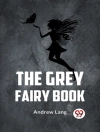In ‘Helen’, Maria Edgeworth weaves a rich narrative tapestry that explores the complexities of female education and moral development in early 19th-century England. Through the character of Helen, Edgeworth delves into themes of personal growth, societal expectations, and the transformative power of love and friendship. Employing a deep psychological insight and vivid characterizations, Edgeworth’s literary style embodies the rationalism of the time while interrogating the limitations placed on women, making this work both a novel and a social critique, ultimately encouraging readers to consider the broader implications of education and virtue in society. Maria Edgeworth, a pioneering figure in the realm of novel-writing, was deeply influenced by her Irish heritage and her advocacy for education reform, particularly for women. Living during a time when women’s roles were predominantly confined to domesticity, Edgeworth used her platform to challenge these tenets. Her diverse life experiences, including her close-knit family dynamics and her understanding of varied social classes, undoubtedly contributed to the depth of her characters and the societal themes she explores in ‘Helen’. This novel is recommended for readers interested in early feminist literature and social commentary. Edgeworth’s nuanced exploration of a woman’s quest for identity amidst societal pressures offers valuable insights into the historical context of women’s rights and education. ‘Helen’ remains a relevant and thought-provoking read that resonates with contemporary discussions around gender and personal agency.
लेखक के बारे में
Maria Edgeworth (1768-1849) was a prolific Anglo-Irish writer of adults’ and children’s literature. She was one of the earliest realist writers in children’s literature and was a significant figure in the evolution of the novel in Europe. Born at Black Bourton, Oxfordshire, she was the second child of Richard Lovell Edgeworth, a well-known author and inventor, and his first wife, Anna Maria Elers. Edgeworth’s education came from her father’s extensive library and her exposure to his intellectual circle, which primed her to become a writer herself.
Her novel ‘Helen’ is among one of her lesser-known works but nonetheless a testament to her literary skill and moral intentions. In her novels, Edgeworth’s sharp observation of character and social dynamics is evident. She typically captured the tensions between tradition and progress, providing keen insight into the challenges and duties of genteel women. Edgeworth was a contemporary to Jane Austen and valued for her portrayals of early 19th-century English and Irish society. Her works, including ‘Castle Rackrent’ and ‘The Absentee’, often addressed issues of estate management, morality, and social order, which had significant influence on the evolution of the novel. Edgeworth’s upbringing and extensive literary output shepherded a nascent realism that underscored the societal changes of her time.












